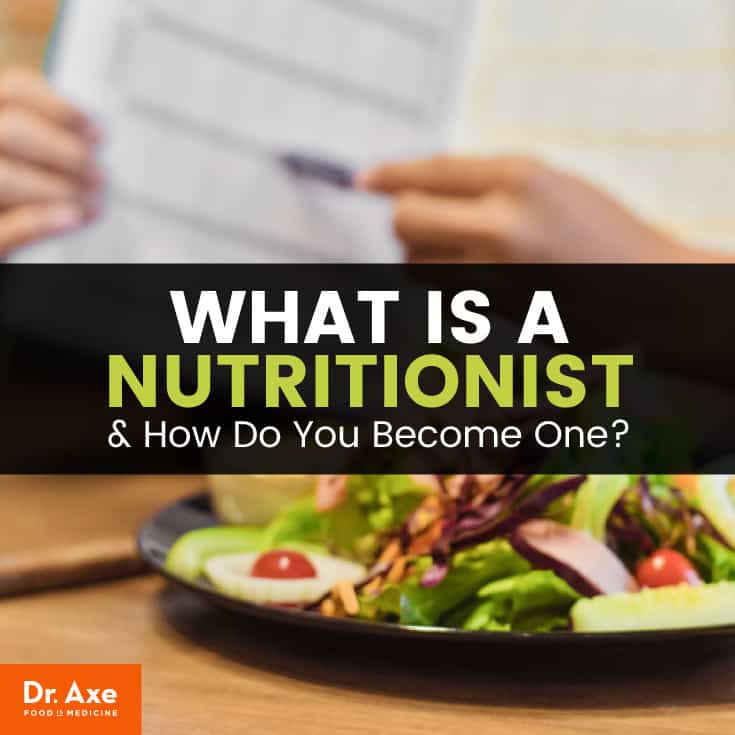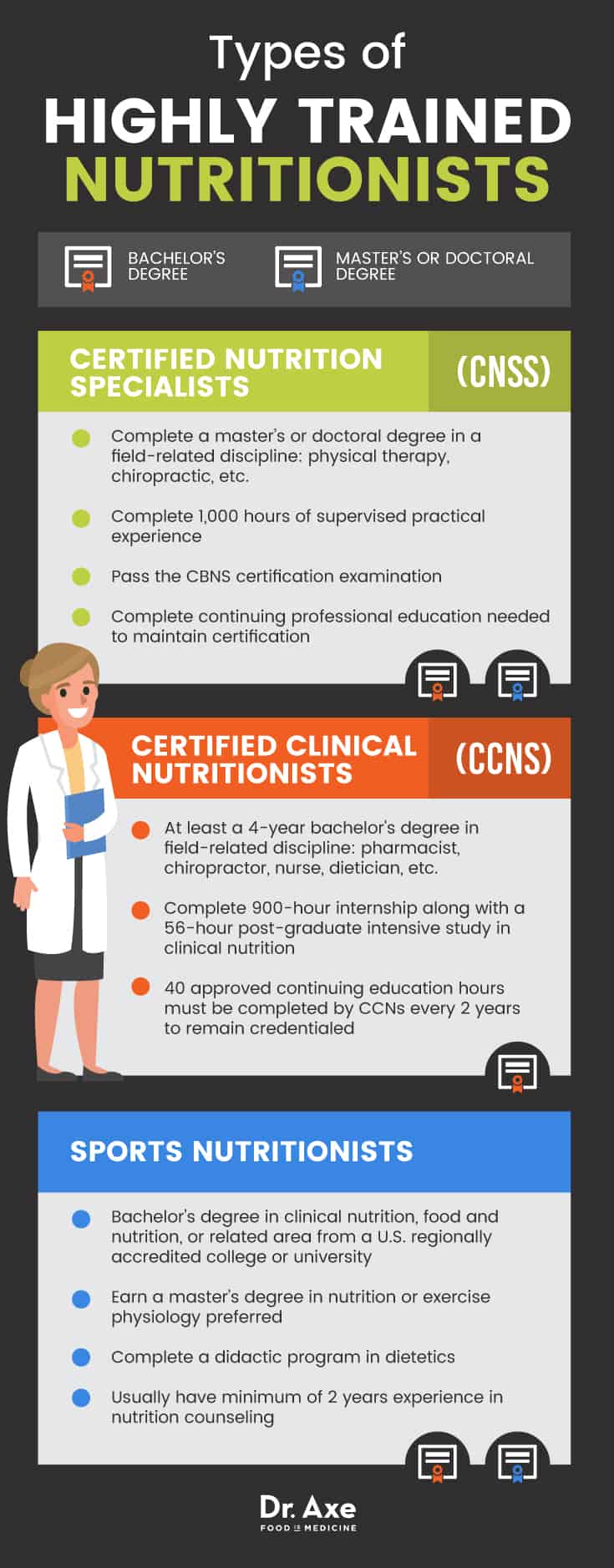This Dr. Axe content is medically reviewed or fact checked to ensure factually accurate information.
With strict editorial sourcing guidelines, we only link to academic research institutions, reputable media sites and, when research is available, medically peer-reviewed studies. Note that the numbers in parentheses (1, 2, etc.) are clickable links to these studies.
The information in our articles is NOT intended to replace a one-on-one relationship with a qualified health care professional and is not intended as medical advice.
This article is based on scientific evidence, written by experts and fact checked by our trained editorial staff. Note that the numbers in parentheses (1, 2, etc.) are clickable links to medically peer-reviewed studies.
Our team includes licensed nutritionists and dietitians, certified health education specialists, as well as certified strength and conditioning specialists, personal trainers and corrective exercise specialists. Our team aims to be not only thorough with its research, but also objective and unbiased.
The information in our articles is NOT intended to replace a one-on-one relationship with a qualified health care professional and is not intended as medical advice.
Nutritionist Belief Systems, Roles and Training
September 10, 2017

A nutritionist is someone who studies nutrition or who is an “expert” in the field. Depending on where you live in the world, nutritionists in your area might refer to themselves as different titles, which can include dietitian-nutritionist, nutrition scientist, registered nutritionist, clinical nutritionist, sports nutritionist, certified nutritionist, nutrition therapist and others. (1)
Nutritionists and registered dietitians (RDs) definitely have certain things in common — they can both help their clients with issues such as overcoming food allergies, weight loss or making healthy behavioral changes — but they also have their differences.
In general, many nutritionists adhere to a more “holistic” view of health compared to dietitians, and the two don’t always see eye to eye on various diet-related issues. For example, many nutritionists choose not to focus on calorie restriction with their clients as much as dietitians tend to, they usually don’t promote eating low-fat diet foods, and they emphasize the importance of focusing on quality more when it comes to making smart food choices.
What Is a Nutritionist?
In most countries, including the United States, the title “nutritionist” is not as regulated as “dietitian” is. In fact, in the U.S. almost anyone can call him- or herself a nutritionist, since the title is not legally protected nor the profession legally controlled. Being a nutritionist therefore has a broader, more general meaning than being a dietitian because it doesn’t require formal training or a specific licensure process to be completed.
Nutritionists can have a wide range of backgrounds, experience and training. Some consider themselves “health coaches,” nutritional therapists, certified nutrition specialist (a protected title that is explained more below) or other similar titles. Others are even doctors of functional medicine or naturopaths. These titles all differ from one another but require completion of nutrition training modules in addition to passing exams. Some may also involve completion of an internship, an existing four-year degree in a related health care field or even a graduate-level degree.
Most nutritionists are educated in one or more (typically many) of the following diet-related subjects:
- Functional medicine.
- Nutrient-dense diets, avoiding processed foods and reducing intake of empty calories.
- Various dietary theories, such as ancestral/traditional diets, the Paleo diet, vegetarian or vegan diets, low-carb diets, alkaline diets, etc.
- Disease prevention, including managing diabetes and preventing heart disease or obesity.
- Stress management, the importance of sleep and circadian rhythms, and appropriate exercise.
- Coaching techniques, including active listening, and others used to help clients with habit formation and behavioral change.
- Supplements, herbal medicine and aromatherapy/essential oils.
- The link between diet and immunity, digestive and gut health, and neurological/mental health.
- Agriculture and farming practices.
- Food politics and food marketing/advertising.
- Specific traditional diets or medicinal practices, such as Ayurveda or Traditional Chinese Medicine.
- Healthy shopping, meal planning and cooking.
- In some cases alternative/complimentary treatments like acupuncture, massage, homeopathy, etc.
- And many other diet-related topics.
Some nutritionists are trained to work with specific populations or in particular setting. For example, types of nutritionists include:
- Public Health Nutritionists
- Pediatric Nutritionists
- Geriatric Nutritionists
- Sports Nutritionists
- Clinical Nutritionists
- Maternal and Family Health Nutritionists

Nutritionist vs. Dietitian
“Dietitian” is a protected title in many countries, just like other health care titles, such as physician, nurse, chiropractor or pharmacist. This means that someone has to meet certain qualifications in order to be referred to as a dietitian, which is not necessarily the case when it comes to being a nutritionist. (2)
Because being a nutritionist doesn’t require proof of qualifications, a nutritionist’s expertise is not always guaranteed. While it is usually more accessible and less time-consuming to practice as a nutritionist, this doesn’t mean nutritionists are devoid of any training or expertise.
Many nutritionists DO in fact have training in the fields of nutrition, diet, holistic health, supplements, alternative care and healthy living. They might not be qualified to work in a hospital, make diagnoses or treat their patients’ diseases, but their knowledge and coaching can be very helpful when it comes to making behavioral changes and transitioning to a healthier way of living.
What are some of the reasons someone might want to work with a nutritionist over a registered dietitian?
- One of the greatest benefits of working with a nutritionist is the approach to promoting better health goes beyond just a focus on “good” versus “bad” foods or calories. There’s a much better chance that a nutritionist’s training was not highly influenced by authorities such as the U.S. Department of Agriculture or the Center for Nutrition Policy and Promotion in the United States, both of which promote eating plans like “MyPlate” that are somewhat controversial.
- Dietitians have historically been taught to focus on helping clients to manage their “calories in versus calories out,” which means they often tend to promote low-fat, low-sodium, low-sugar and overall low-calorie foods. This isn’t always a bad thing, but it can be when higher-calorie traditional foods are discouraged (such as coconut oil, raw dairy products, grass-fed butter or grass fed beef) despite the fact they are actually healthy.
- Additionally, a growing number of health care professionals now believe that dietetics is only one part of a healthy lifestyle. Registered dietitians tend to have a lot of knowledge about food groups, different nutrients and diet plans used to to help manage diseases, but they don’t usually focus on other aspects of healthy living as much nutritionists do — for example, factors like stress, getting enough sleep, physical movement, spirituality, relationships that contribute to happiness and mental health.
- To sum it up, nutritionists typically take a “big picture view” of health. They recognize that high-quality ingredients are very important, diets that includes a wide variety of foods are usually best, a lot can be learned from mimicking traditional diets, and other aspects of life are also highly influential when it comes to our well-being, especially movement and stress.
Nutritionist Training and Education
How to Become a Nutritionist:
As mentioned above, nutritionists vary considerably in terms of their exact area of expertise, as well their training. Believe it or not certain nutritionists even have graduate degrees or Ph.Ds in related fields but choose not to become registered dietitians for any number of reasons, such as not agreeing with dietitians’ belief systems or due to the time and financial investment required to become an RD. Depending on the training a nutritionist receives, he or she may have had to pass certification boards or completed an internship-type program.
Qualifications vary from school to school since requirements are not tightly regulated. Therefore the first step in becoming a nutritionist is to determine how much time, money and effort you’re willing to invest into a nutritionist training program. If you plan on being a practicing nutritionist full time, it pays to invest in a quality program. If you hope to practice nutrition coaching/counseling part time or in addition to other treatment approaches you already offer clients (such as personal training, physical therapy, acupuncture, yoga, etc.), then you may want to earn your title more quickly and with less investment.
Below are several types of highly qualified nutritionists along with details regarding their training and education.
Certified Nutrition Specialists (CNSs):
One professional nutrition title that can be earned by those who are considered “nutrition experts” is a “Certified Nutrition Specialist” (or CNS), which is separate from being a dietitian. In the U.S., a CNS certification is listed by the U.S. Government’s Department of Labor as an advanced nutrition credential in the “Dietetics and Nutritionists” profession. The Board for Certification of Nutrition Specialists (BCNS) offers the opportunity to earn the certified nutrition specialist credential to those who meet certain qualifications and have a level of experience. To become a CNS, someone must:
- Complete a master’s or doctoral degree in a field-related discipline. This can include completion of an advanced degree in physical therapy, chiropractic, etc. Physicians (medical doctors, or MDs), RDs and other type of health care professionals might choose to become CNSs if they want to offer another treatment approach to their clients. The BCNS website states that there are three distinct certification pathways: CNS for Nutrition and Health Professionals (CNS®), CNS for MDs and DOs, and CNS for Scholars (CNS-S℠), including scholars, researchers, educators, product developers or scientists. (3)
- Complete 1,000 hours of supervised practical experience (similar to an internship earned by RDs or RDNs).
- Pass the CBNS certification examination.
- Complete continuing professional education needed to maintain certification (also similar to what RDs or RDNs must do).
Certified Clinical Nutritionists (CCNs):
Similar to a CNS, there is also the title of Certified Clinical Nutritionist (CCN). A CCN is a highly qualified professional (such as a pharmacist, chiropractor, nurse or dietician) with at least a four-year bachelor’s degree and a 900-hour internship, along with a 56-hour post-graduate intensive study in clinical nutrition. Another qualification could be a master’s degree in human nutrition from the University of Bridgeport or Bastyr University.
In addition to their initial training, 40 approved continuing education hours must be completed by CCNs every two years to remain credentialed. When it comes to their belief system, CNSs and CCNs tend to have more in common with other types nutritionists than dietitians. The American Nutrition Association states, “Rather than strictly advocating a pyramid or food-group-style diet, the CCN determines the healthiest and most effective program for the individual according to the latest nutrition research and the unique biochemical make-up of the individual.” (4)
Sports Nutritionists:
Depending on their degrees, sports nutritionists may also be called sports dietitians. According to the Academy of Nutrition and Dietetics, a sports dietitian “provides individual and group/team nutrition counseling and education to enhance the performance of competitive and recreational athletes, on-site and during travel.” Most work as part of a multidisciplinary sports medical team, and when they are registered dietitians may be employed by professional teams, universities or health care facilities. (5) The International Society of Sports Nutrition (ISSN) is considered the world leader and only nonprofit academic society that is “dedicated to promoting the science and application of evidence-based sports nutrition and supplementation.” (6)
In order to be sports dietician, someone must complete a bachelor’s degree in clinical nutrition, food and nutrition, or related area from a U.S. regionally accredited college or university, earn a master’s degree in nutrition or exercise physiology preferred, complete a didactic program in dietetics, and usually have minimum of two years experience in nutrition counseling. Another type of degree, called a Sports Nutrition Specialist (SNS), is also offered by the ISSN to those who don’t have a four-year degree in a related field. Some of the responsibilities that a sports nutritionist/sports dietitian has include:
- Tailoring diet plans for athletes based on their body composition, energy balance (intake and expenditure), level of training and goals.
- Optimizing nutrient intake based on different training phases and goals — for example, before or after competitions in order to fuel activity and boost recovery.
- Helping athletes with weight management, muscle gains and other body composition changes.
- Training athletes to stay properly hydrated and preventing dehydration or electrolyte imbalance.
- Improving athlete’s energy levels, immunity, stress response and sleep.
- Working with athletes who are dealing with disordered eating.
- Helping athletic teams continue to eat well during times of travel.
- Offering advice regarding supplementation based on rules and regulations of athletic governing bodies.
- Providing meal and snack plans that are personalized based on food allergies, gastrointestinal disturbances, deficiencies and preferences.

Nutritionist Salary and Job Outlook
A nutritionist’s income can range significantly depending on the individual’s qualifications, the exact degree he or she holds, and the employer. Those who have graduate-level degrees usually earn higher salaries, especially if they work with clients full time in a health care setting.
The median annual salary of a nutritionist in the United States who has an entry-level degree (bachelor’s degree) is between $45,000 and $57,000.
Clinical nutritionists, especially if they work in an urban area, tend to make more than nutrition coaches or those with less credentials. (7) There’s expected to be a high level of job growth over the next 10 years in most nutrition-related fields. A growing number of nutritionists and dietitians are now being hired by hospitals, doctors offices, large corporations, schools, universities, athletic teams, gyms and nursing homes.
Top Nutritionist Schools and Certifications
Top 5 Nutrition Certification Programs:
- Institute of Ancient Nutrition (IAN) — This certification program isn’t enrolling future nutritionists just yet, but will be available soon (click here to put your name on the waitlist). Not only can you become a certified nutritionist through ANI, but you’ll also become a health coach as well. This course combines eastern and western nutritional practices by focusing on Traditional Chinese Medicine, Ayurvedic nutrition along with more recent dietary protocols such as the Ketogenic diets and Gerson therapy. This curriculum goes in-depth on herbal remedies, essential oils, supplements and teaches you how to use food as medicine with your future clients. Lastly, this program is also the strongest we’ve seen in teaching you the business principles to help you thrive in your future business as a nutritionist.
- Certified Board of Nutrition Specialists — Offers degrees to advanced-degreed health professionals who wish to demonstrate competence as advanced clinical nutrition professionals. Rooted in science-based advanced medical nutrition therapy, nutrition research, dietary education and counseling. Prepares nutritionists to work in settings such as clinics, private practice, hospitals and other institutions, industry, academia, and the community.
- Clinical Nutrition Certification Board — Offers advanced training for physicians and other health care professionals. Requires completion of four modules and passing an online exam. Focuses on nutrition/lifestyle modification, nutritive supplementation, understanding of physiological/biochemical pathways, evoking regenerative processes, and completing client observations and assessments, such as case history reports, anthropomorphic measurements, physical signs and laboratory test analysis.
- Hawthorn University Nutrition Consultant (NC) Program — Designed for high school graduates or individuals who possess an earned GED and are interested in working in the field of nutrition. Distinguished by a relationship between student and instructor who supports learning that is engaging and accessible. NC is a 48-credit program with an optional additional four-credit research project and presentation component. Consists of 16 courses that focus on topics such as whole foods, traditional hunting and gathering, digestive health, life stages, endocrine balance, fitness, neurological health, and immunity.
- Institute of Integrative Nutrition — Offers an online degree in holistic health coaching with a focus on topics such as bio-individuality, dietary theories, traditional diets, counseling skills, superfoods and stress reduction. Modules are completed over the course of about one year, along with completion of coaching calls and several exams.
Other noteworthy nutrition programs to consider include the Functional Diagnostic Nutrition program, the Holistic Nutrition Lab program, the Natural Gourmet Institute and various schools that focus on particular dietary theories, such as the Ayurvedic Institution.
Certain universities also offer nutrition degrees that have a more holistic approach and focus on the latest medical evidence of nutritional and dietary therapy. Some of the top universities in the U.S. currently offering these types of nutrition degrees include:
- Columbia University, Institute of Human Nutrition
- University of Maryland, Department of Nutrition and Food Science
- University of Arizona, Department of Nutritional Sciences
Final Thoughts on Nutritionists
- A nutritionist is someone who studies nutrition or who is an “expert” in the field. The title “nutritionist” is not as tightly regulated as the title “dietitian.”
- Nutritionists tend to be more holistically oriented than dietitians, although this isn’t always the case. Nutritionists help their clients with topics such as meal planning and preparation, increasing nutrient intake, avoidance of processed foods, overcoming emotional eating, behavioral changes, supplements, etc.
- There are many roads to becoming a nutritionist and many different related titles, such as studying to become a Certified Clinical Nutritionist (CCN), Certified Nutrition Specialist (or CNS), sports nutritionist, public health nutritionist or nutrition/health coach.














